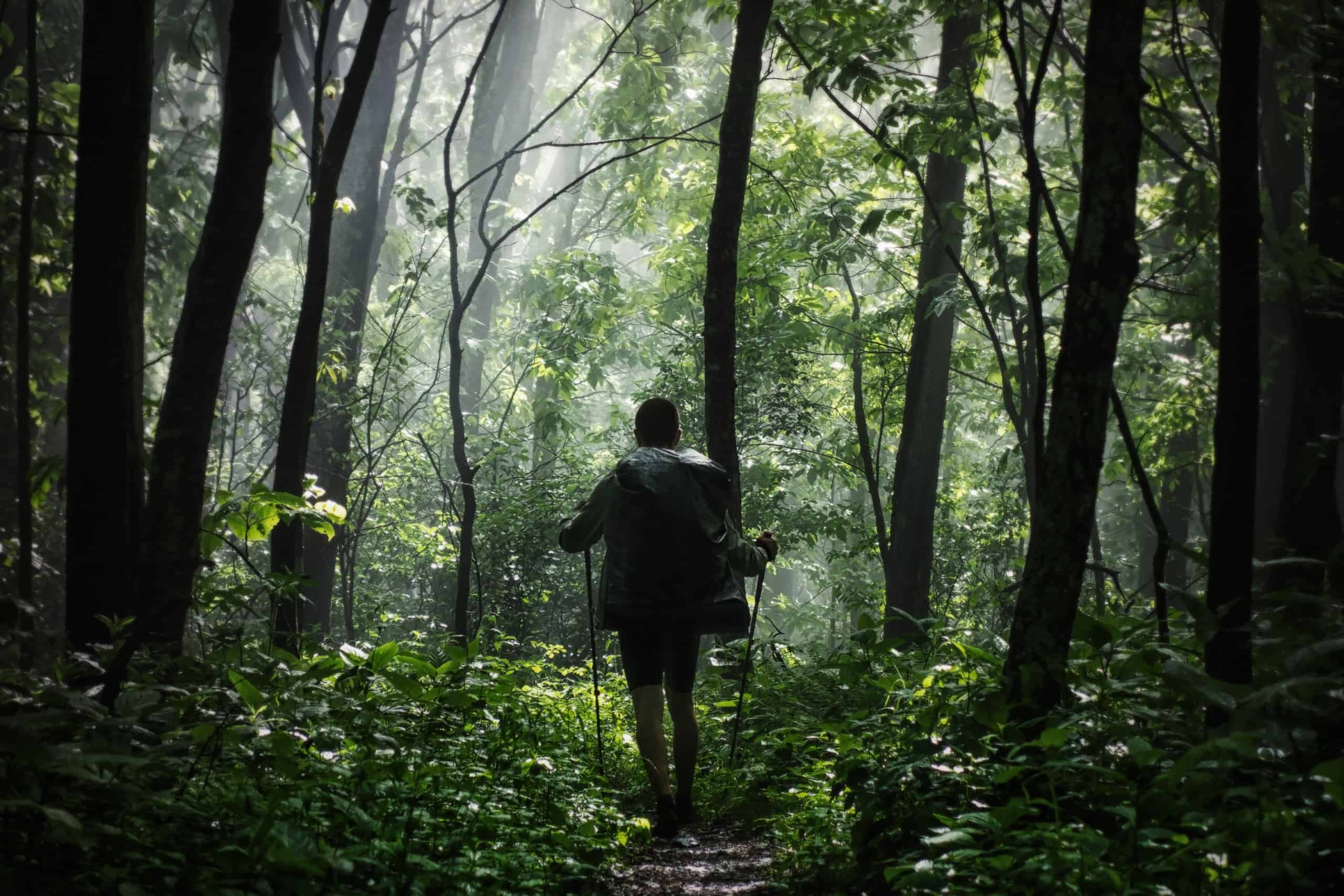A lot of things can happen in life, so it is best to always be prepared for when things go wrong. While you could be on a simple bike ride, hike, or camping trip in the middle of the wilderness somewhere, there is a possibility you could get lost. People even get lost due to falls or running off a trail. Regardless of the reason, oftentimes you need unique ways to survive when lost in these elements.
Most of the time, when these random issues happen, people are often very unprepared to handle things. It makes sense not to be prepared for a long stay in the wild when you likely never wanted to be there for longer than a small period of time. Due to the fact that anything can happen in life, it is always best to know what to do if/when random problems arise.
That is what our list is all about, as we will be counting down various unique ways to survive when lost in the wilderness. We decided to label “wilderness” as a catch-all term for multiple different areas around the world. This could mean being lost in the Amazon Rainforest as well as the African Wilderness too.
On top of this, we will be discussing several unique survival methods for some important material. However, some stuff we used in our list may not seem unique to some. We tried to give people a long list of unique methods but there is a good chance some people know a few of them.
With all of this being out there, let’s dive into the multiple unique ways to survive when lost in the wilderness.
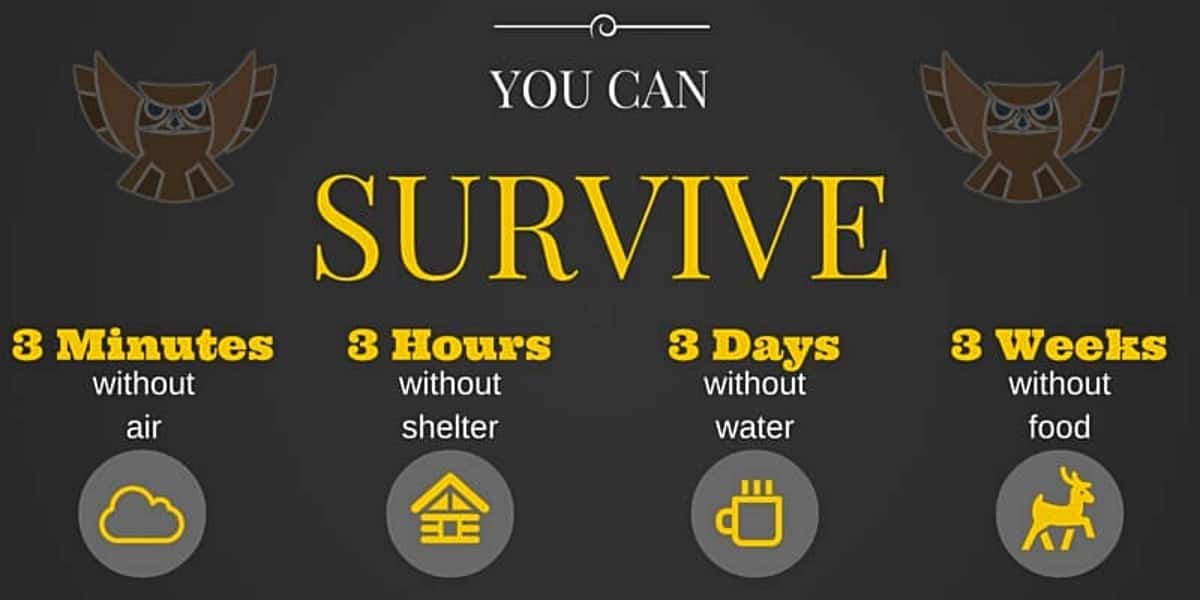
35. Remember the Rule of Threes
A lot of people know that you need to have various things to survive. People are obviously all the same at the end of the day, in that we all need food and water. However, the Rule of Threes in survival is important and often ignored. If not ignored, it may not be known fully.
In survival, the Rule of Threes refers to the average length of time a human can be without something before problems can possibly arise. The Rules state that a human can survive up to 3 weeks without food, 3 days without water, 3 hours without shelter, and 3 minutes without oxygen. Going beyond the length of three for any of these is asking for trouble.
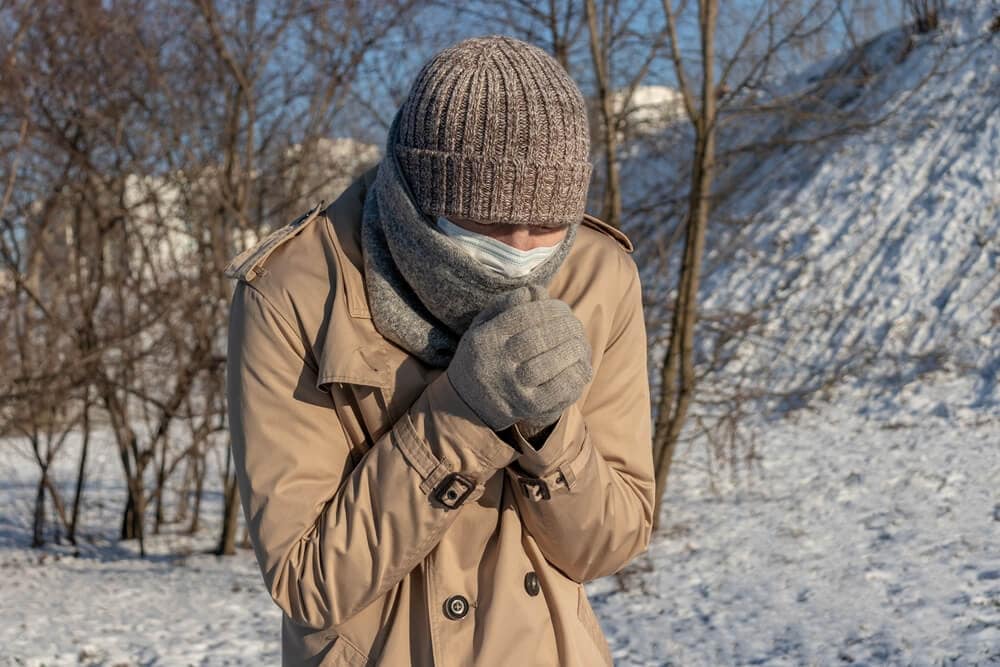
34. How to Insulate for Warmth
If you’re caught out in the wild as weather changes, especially in overnight situations, chances are that you’ll be quite cold. This is especially true if you cannot get a fire going. To stop this problem, you can insulate. Most places will have trees and leaves will fall from most of them throughout the year.
If they do not, you can always pick them off if needed. These act as a wonderful insulator. Merely stuff your jacket or shirt with them. They will absorb a lot of the cold before it gets too serious and they’ll keep body heat from escaping as fast.
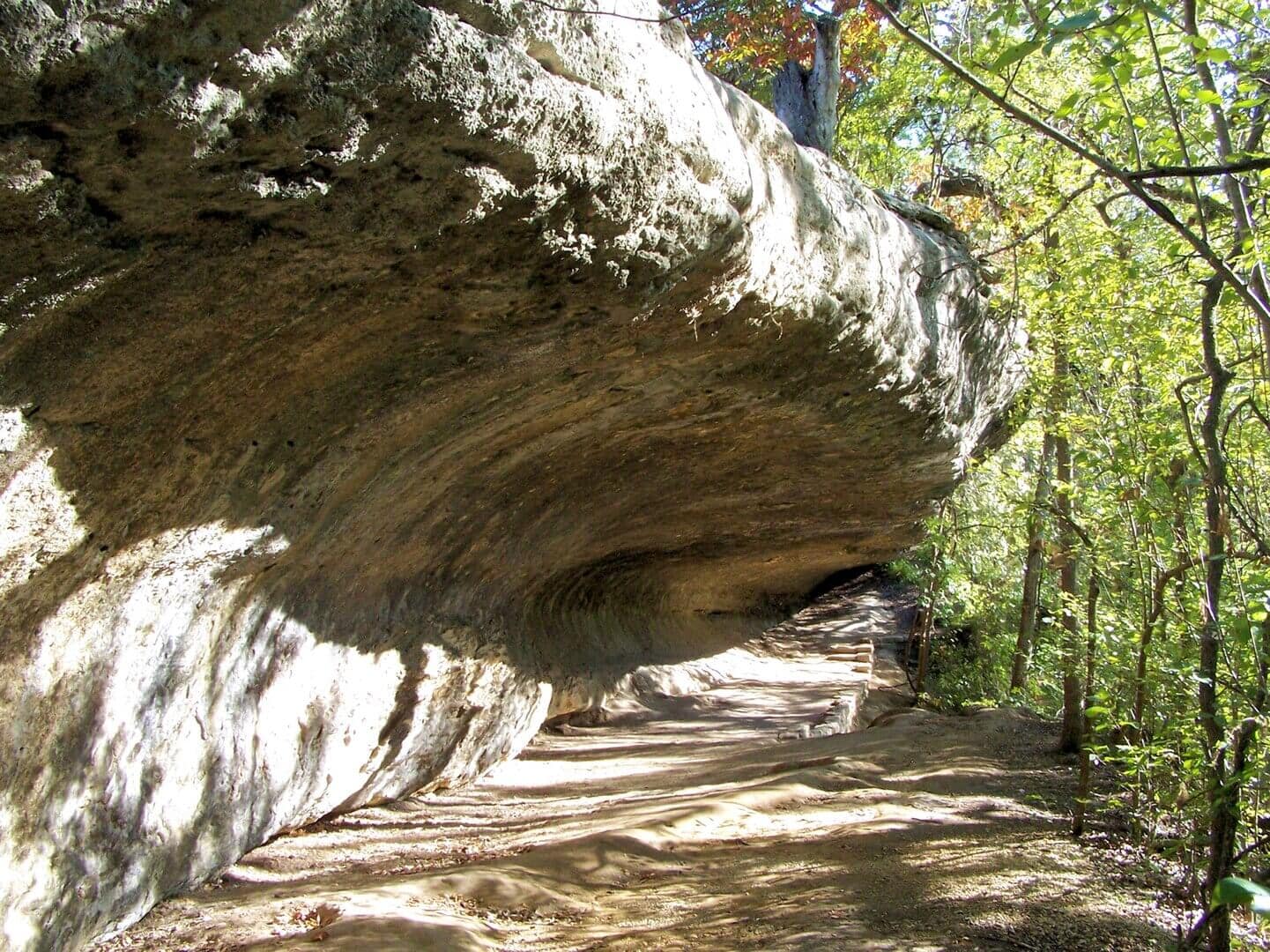
33. The Easy Shelter
A lot of the time on survival shows from Discovery Channel, you’ll see how these survival experts make some absolutely impressive shelters. The problem is that these people have done this sort of thing for years and know how to get something like that done in a fast period of time. You need to do what’s easiest, however.
Things like snow can be dug into where you can literally just dig a hole and then a small tunnel to climb into. You can also find big rock formations to sleep underneath or unused caves. Both keep you out of the elements enough. Simply keep aware of your surroundings to find something like this.
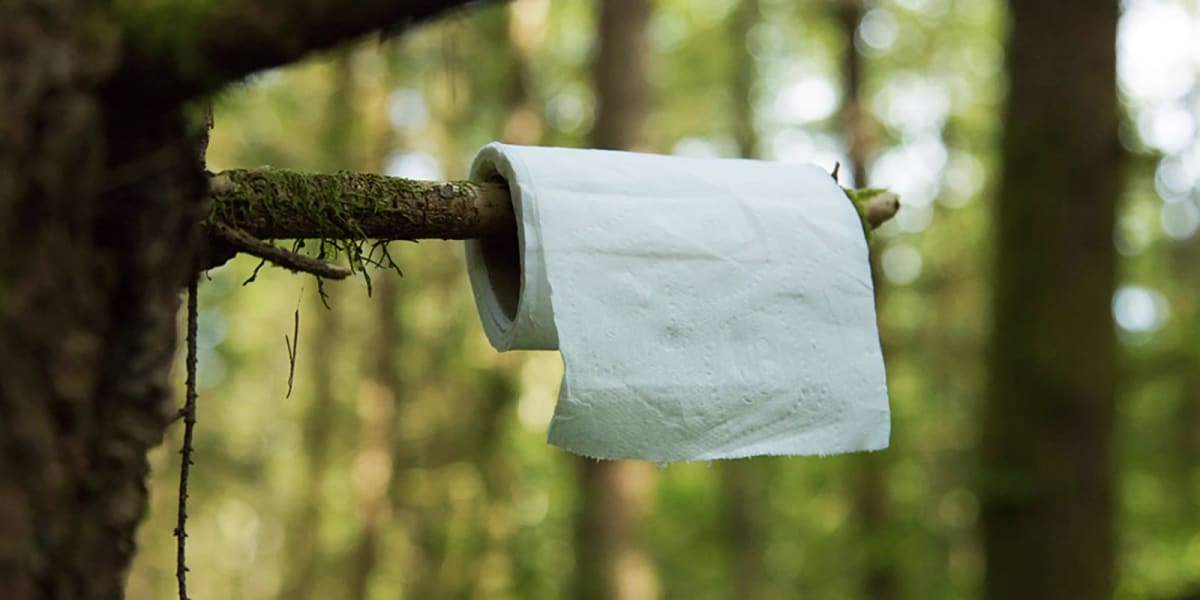
32. Know Where To Do Things
You may know already that when you have a great campsite, you should never use the restroom right there. It is best to walk a bit away and dig a hole to do your business in. Then cover it before you leave. This needs to happen at least the length of 50 to 100 yards. Smells can travel and animals can sniff out other animals by their “business.”
That means you’re kept safer by doing this away from the campsite than close to it. The same is in play when you’re skinning another animal. Again, like doing your business, other animals can smell out things like entrails from another animal. They may stay away from fires but anything you leave from the animal unused has a smell even humans can sniff out. Process away!
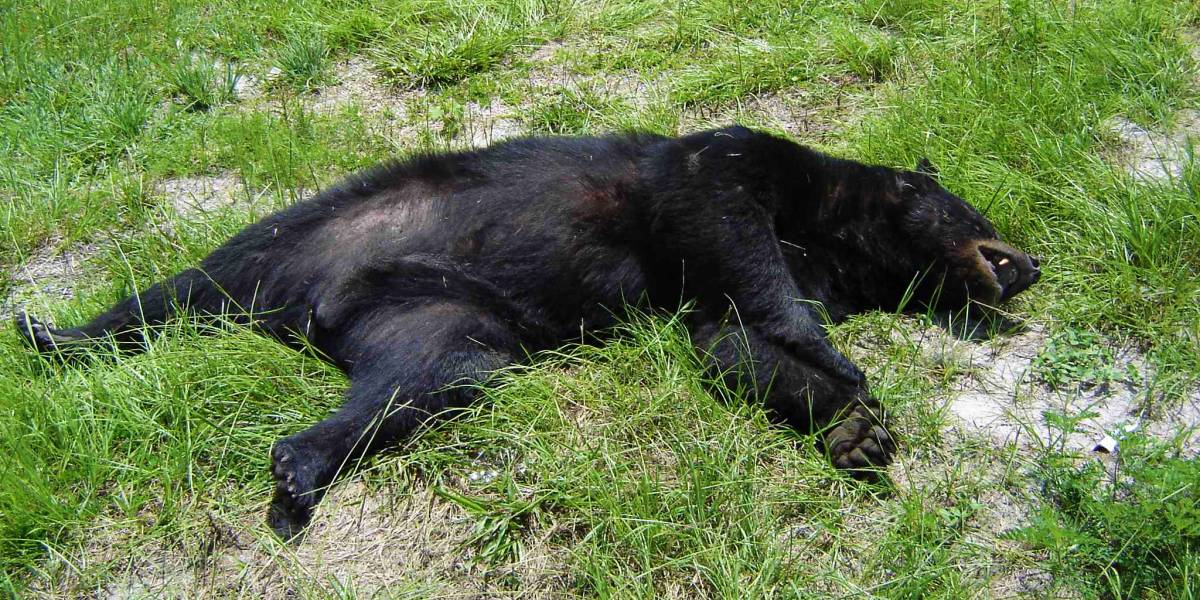
31. Speaking of Dead Animals…
While making sure you gut the animal you hunted down away from your campsite is always a good thing, there are a few things to keep in mind. A dead animal provides a lot of helpful stuff. This goes for the one you killed or one you might find in the wild randomly. The biggest things to consider might be a bit gross, but it’s something to consider when in a survival situation.
Animal bladders are great for holding water. Depending on the size of the bladder, you can clean it out and ultimately use this as a helpful water carrier when there are no other options. Obviously the bones from the animal can be used to craft tools as well as weapons and hunting gear. Truly, a dead animal carcass is an invaluable resource.
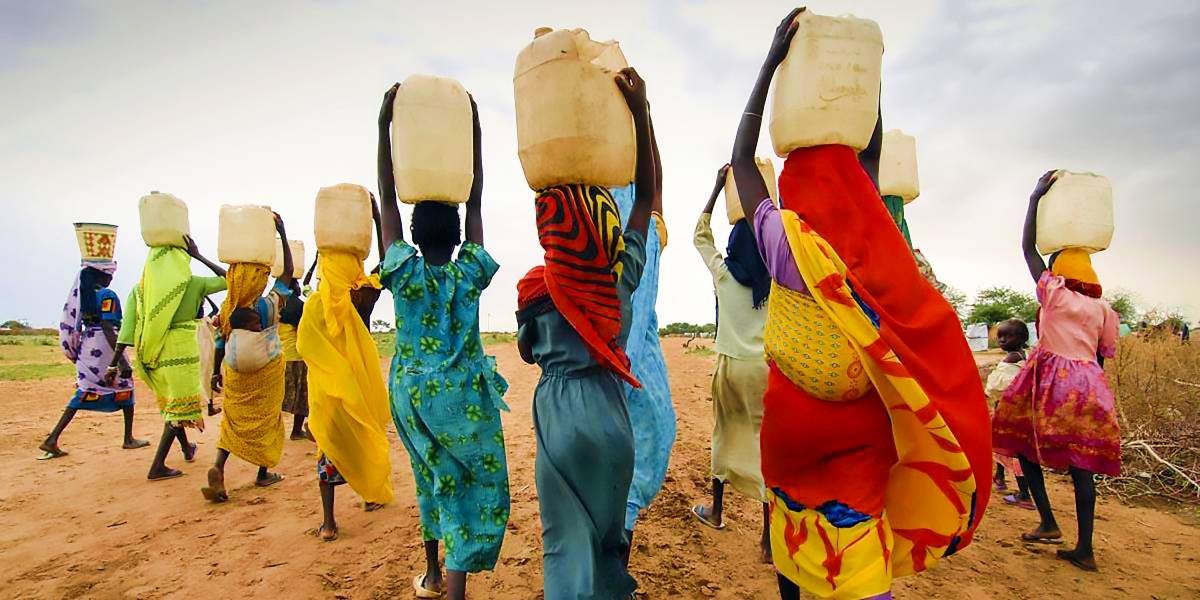
30. Water is Valuable, But only so much
While finding as much as you can to carry water is important, one of the most unique ways to survive when lost might very be to not carry as much. Sure, water in a set container is great. You will need water, and if you feel you’re going to be away from a water source for a long time it will be best to carry some. However, carrying too much comes with a price.
Water has weight to it. The more you carry, the more weight you’ll lug around. There is a thought in survival that if you have to work harder to carry more water, you’re ultimately slowing yourself down and using up more energy and thus more water than needed. Therefore, one should only carry what makes sense.

29. How to Predict the Weather
When considering ways to survive when lost in the middle of nowhere, the weather will play a huge factor in literally everything. This is good to know for things like traveling or staying put, as well as when to stop and rest. Did you know you can predict when certain weather comes by just looking up?
To safely predict if rain or snow is coming within a 24 to 36 hour period, look for a halo caused by the refraction of light by ice crystals in the cirrus clouds. If this halo is broken, the broken side will point right to the direction of an incoming storm. If there isn’t anything to worry about, you’re good. Especially if the break is not pointing your direction.

28. Those Shoelaces can be Very Important
It is often assumed that shoelaces are only good for keeping those shoes of yours tied, but they can be so much more. Inside the laces, you’ll basically have a bunch of fibers either synthetic or not. A lot of the time, the material used here is the same types of things you’ll see in rope.
One of the more unique ways to survive when lost in the wilderness is using the insides of these laces as cordage. Trust us when we say you’re likely going to need to tie some things together. On top of this, once you remove the insides of the laces, you can tie up the outside of the laces like you normally would. You have two uses out of them now!

27. Hand Sanitizer can be really Helpful
When you randomly get lost in the wilderness, it is possible that you will have some supplies on your person. This can be a good thing as a lot of it can come in handy. When it comes to hand sanitizer, something many women and even men may carry, you have a lot of uses.
Since the sanitizer is an obvious help for cleanliness, you the normal use of the stuff automatically. In addition, it is a great aide for fire due to alcohol or ethanol content inside. Both are useful for fires, especially when you have damp or hard-to-catch-fire contents.
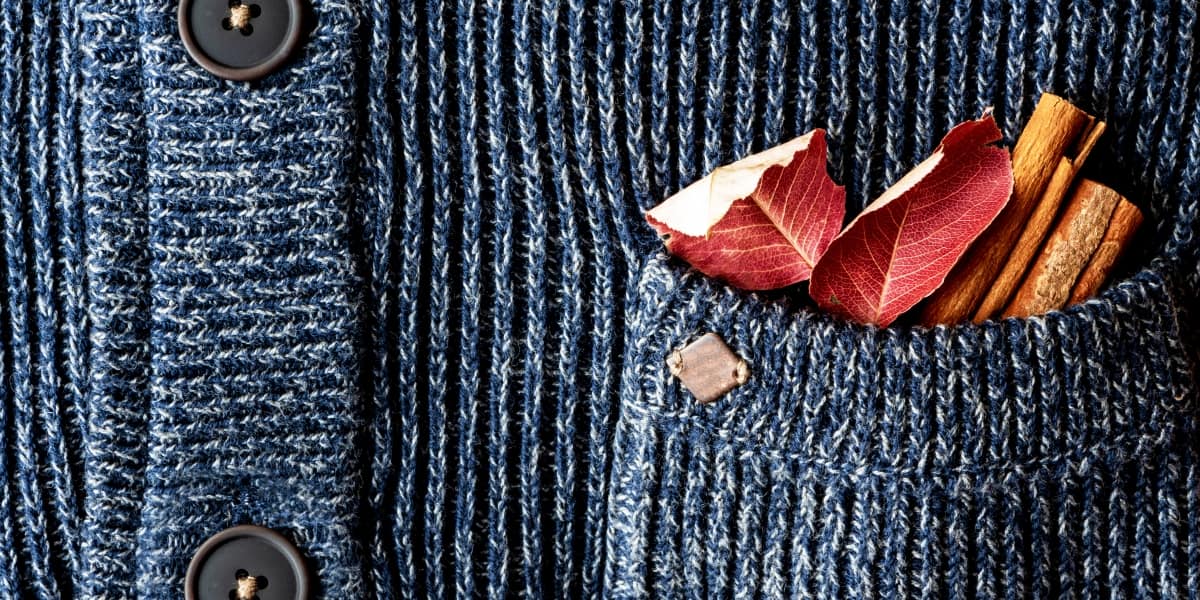
26. A Trick for Wet Kindling
It is likely that you will run into wet conditions in survival situations. Due to this, you need to be prepared. The best way to do this is to pick up things like moss or other flammable properties like it. In one of the easiest ways to survive in the wilderness, you can put these into your jacket or shirt pocket if they are wet.
Your body heat will slowly get the water out of them while you could likely absorb some of that water and turn it into sweat somewhat. By the time you need this for your fire, they’ll be dry enough and light pretty quick.

25. Wildlife can be Helpful
While it is often best to stay away from wildlife in survival situations as much as possible, there is a good reason to get closer at times. Depending on where you’re at, the wildlife you follow will likely be dangerous or possibly not at all for humans. If you feel you can avoid larger predators, follow animals whenever possible.
A lot of the time, they know the area well and will lead you to better conditions. There are even stories of monkeys in the Amazon taking pity on some humans and leading them to places where they can get fruit. This is not always going to happen in the wild, but following them can lead to better conditions and even civilization at times too.
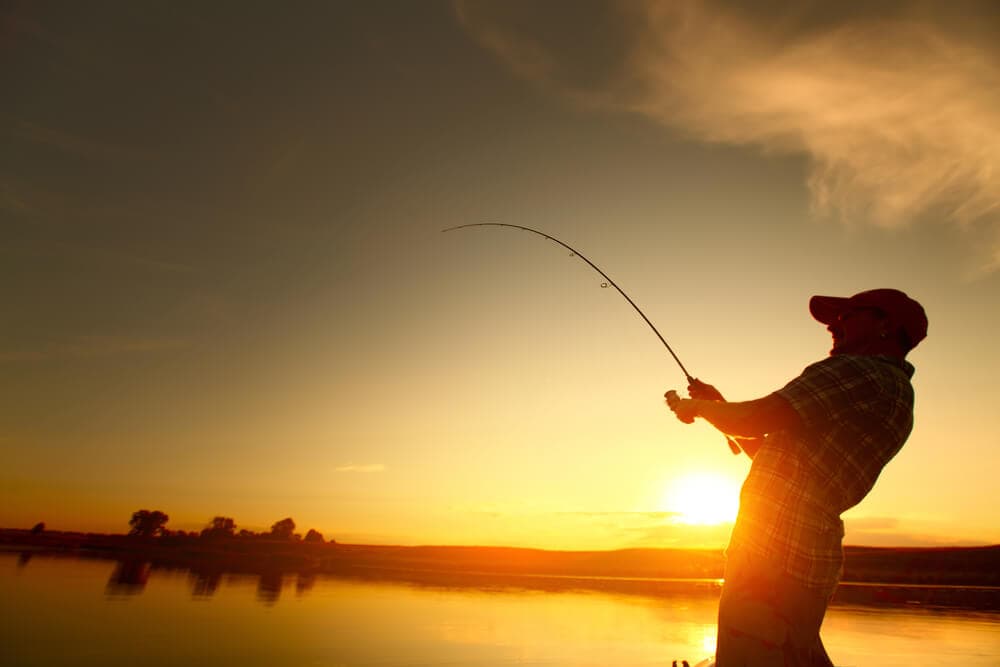
24. A Real Fishing Trick
A lot of the time, fishing can be a difficult thing to do in survival situations. You’re hungry and need some protein, so you’ve now found a way to rig up a fishing pole and even a hook and bait. Yet you are still struggling to get fish to bite. What does one have to do to get some food?
While this may not always work in a competitive contest, the best way to catch fish is to follow the wind. This will not work in places like creeks where water moves in one section but in a river, lake, or ocean it can. Fish tend to swim toward the wind, regardless of how strong it is. Since most fish do this, all you need to do is fish against this and you’ll likely have better luck.
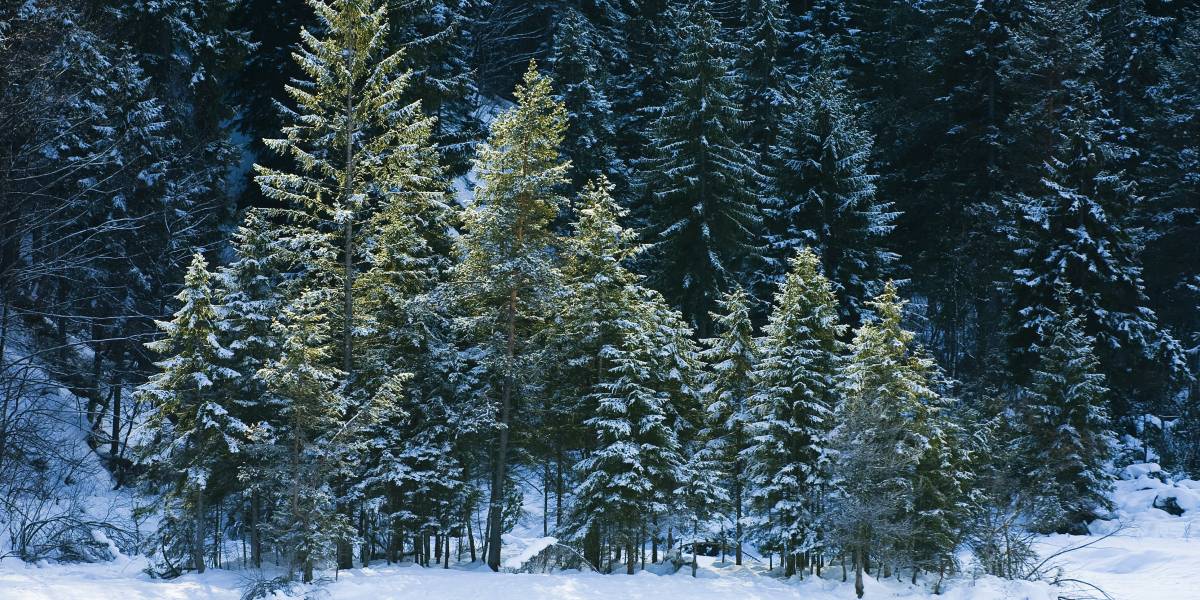
23. Edible Trees?
One of our more unique ways to survive when lost in the wilderness is to look for bark. A lot of the trees you’ll come across will have an editable bark. Not all tree bark will be editable obviously, so you’ll need to know going in what trees have this type of bark.
However, most Pine trees will have this. Others like Black and Red Spruce, Black and Yellow Birch, and even Tamarack trees all have edible bark. Now, what we mean by this is the inner bark. Trees also provide other edible items like leaves too. Pine trees alone have pine that can be used in various teas or soups.
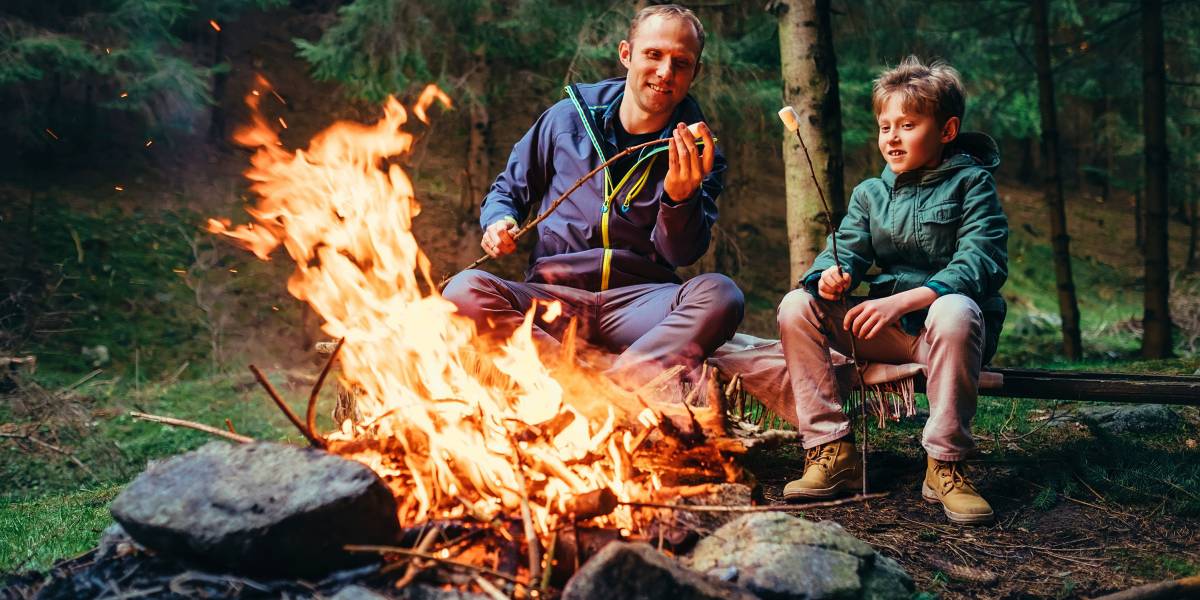
22. Don’t get off to a Rocky Start
So you’ve done all you can do to make sure you have a proper fire ready for cooking and warmth. Good for you. This is a big win at the end of the day, so the last thing you want is for it to go out. You also do not want one to get out of control either, but how do you go about this?
One of the ways to survive when lost is to make sure you know every campfire needs rocks to help control it. Rocks cannot be burnt up in the type of fire you’re creating. You can usually find rocks for this sort of thing by any body of water as well as several areas in the wilderness. You’ll more than likely trip over some when walking.

21. Be Berry Careful
Everyone loves berries seemingly. They are a good source of energy in the wild and offer a rest from the bland foods you may see more often. Thus, finding berries can be a huge thing. However, you may also come across poisonous berries. This means you need to know how to identify the safest berries to eat in order to not have some severe issues.
In general, most of the white, yellow, and green berries will be poisonous in the wild. Around 50% of the red berries often are, so play it safe and avoid them. The safest are often black, blue, and aggregated berries. Steer clear of the Pokeberry though, it’s pretty toxic.
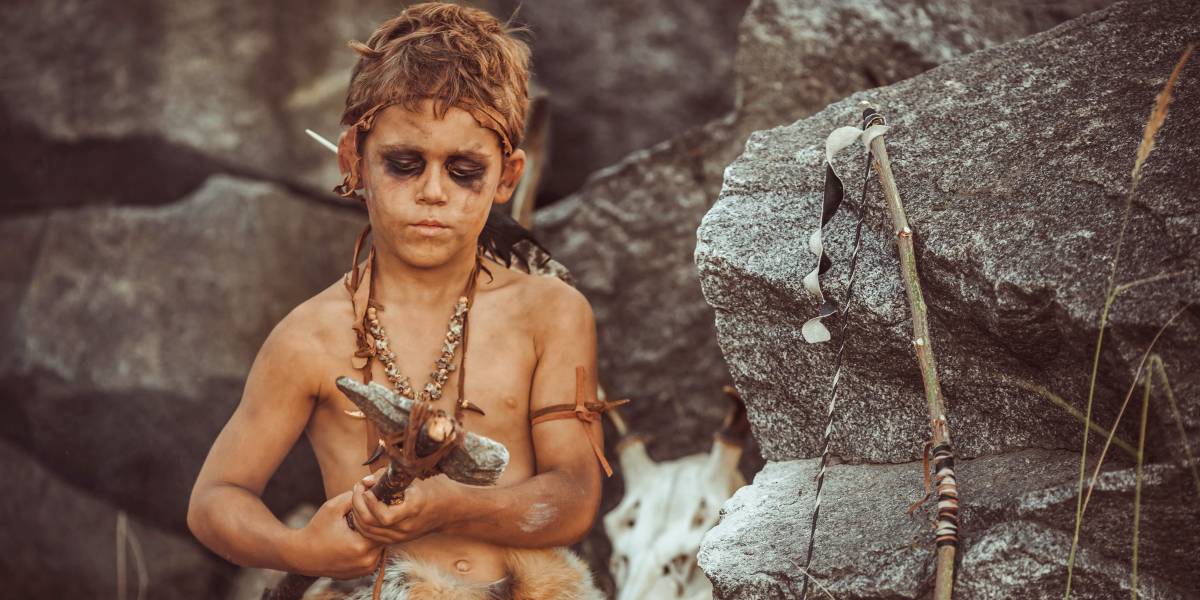
20. Weaponry
You need something that can help you protect yourself in the wild, as there will likely be numerous animals that are happy to eat you. Therefore, a weapon is a must and making one earlier in your trek is smart. One of the best ways to survive when lost out in places like this is to consider two types of weapons.
You want a blunt object that can be thrown. This means you can find a brand or stick that is sturdy and bigger on one side or you can add something to it by tying it on as a makeshift tomahawk. A spear is also a big addition, as you can make a fine tip by sharping it with things like a rock along with a knife if you have one.

19. How to Navigate
Need to navigate and are caught without a compass? You can make your own! The best way to do this is with a magnetite rock, which might be present in the area you’re located in. If not, you can use the “shadow stick” method. Simply find a stick that is a straight as possible then find an open area, as open as possible at least.
Hammer the stick a bit into the ground here, keeping it as straight as possible. Find smaller sticks and mark the shadow area with the smaller stick every 10 to 15 minutes. Do this for about an hour and find a bigger stick to put along with the smaller ones on its side. This stick will help you find the true West and true East at the ends. Put another stick in the middle to find the true North and true South.
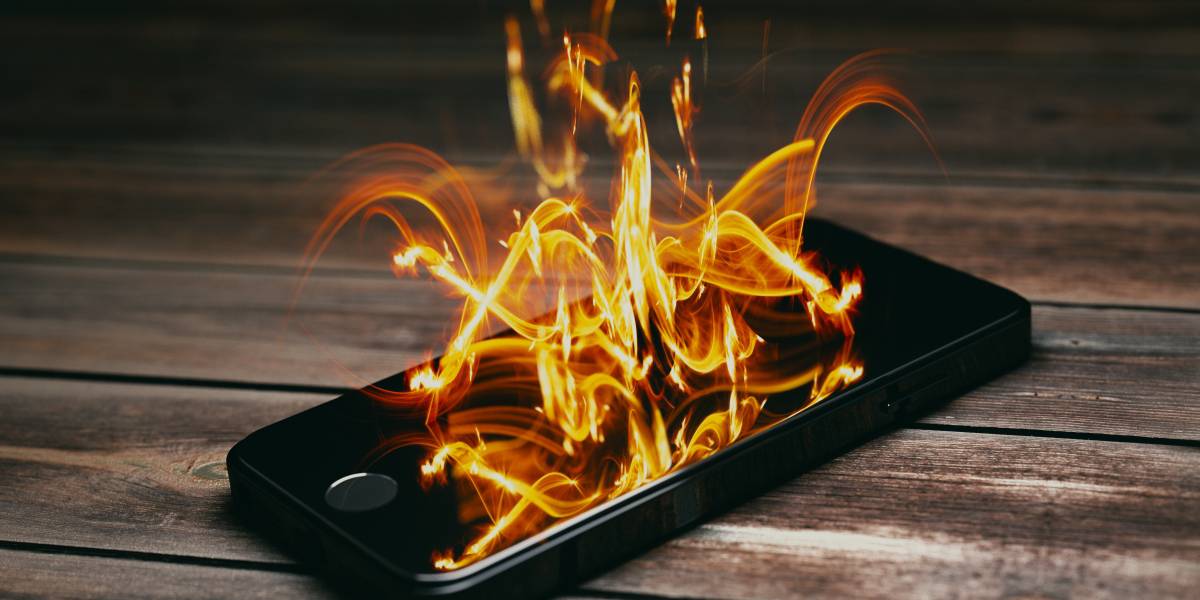
18. Cell Phone Fire
When you’re in the middle of nowhere and need to start a fire, chances are that you may struggle to do so. Yet you’ll likely have a cell phone on you. If you have an Android, you can pull out a battery even if it is not charged and open it up. When the battery is cut into and exposed to the oxygen, it should smoke up and help you start a fire.
For the iPhone, you cannot remove the battery from most of them. But if you’re not partial to the phone or near an upgrade, you can take a knife to it and open it up to have a similar chemical reaction. However, it is often harder to do this with the iPhone over an Android.
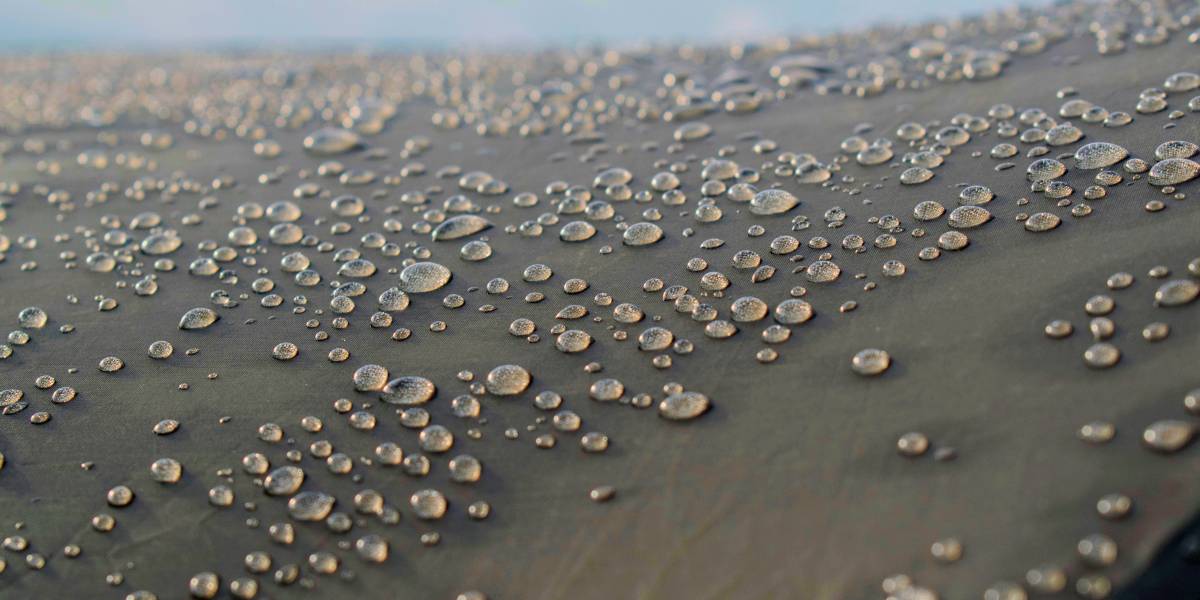
17. Waterproofing
There’s a trick most campers know about, where you can spray some PAM or nonstick spray on your tent to help the tent push off any rain that might fall. Although there are far better sprays to help with this. The concept of waterproofing has been in practice for thousands of years, however.
The most common way it was done then was finding leaves that were so smooth that water merely rolled off of them. This means you can find big leaves like this in the wild and use them to cover your shelter. Some cupped versions can be good to help lead water into a certain area, allowing you to collect the rainwater for much-needed hydration.
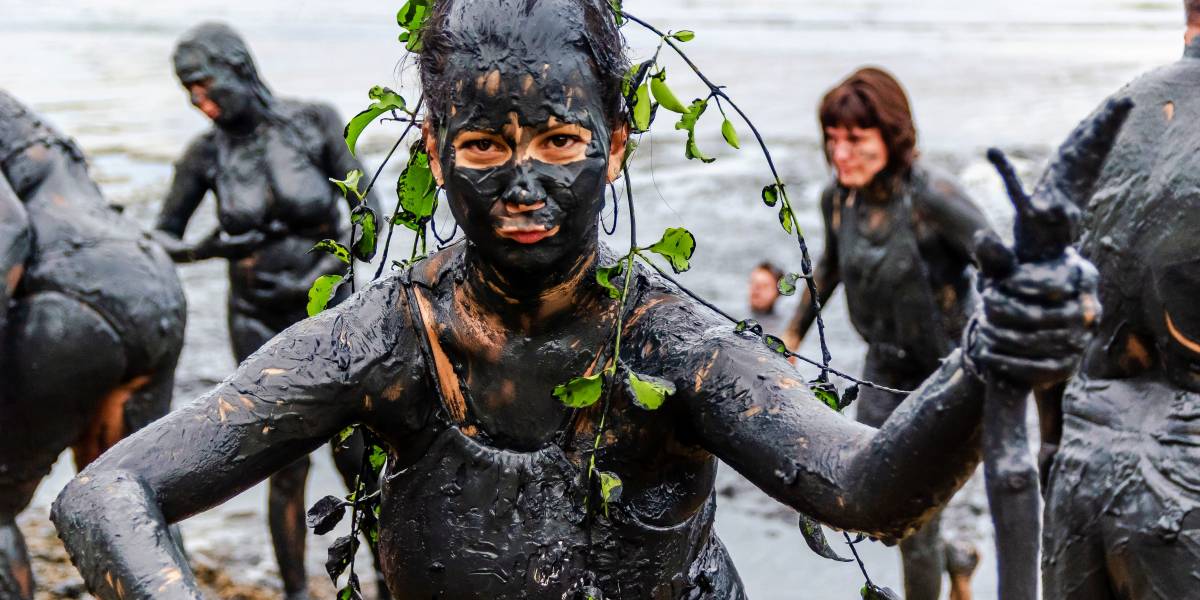
16. Natural Bug Repellant
It is highly unlikely you will have bug spray on you while you’re in a survival situation. Even if you do, it’ll eventually run out or you may have bigger uses for it. However, you shouldn’t fear if you don’t have any or run out! One of the ways to survive when lost is all about keeping bugs away.
There are two ways to help with this. The first is using ash from your campfire. Smoke from the fire will keep most bugs away but ash can help with this too. If that fails, cover your exposed body in mud. Bugs cannot cause any issues with your skin this way and even if they try to bite, the mud will prevent them from sticking into your skin.
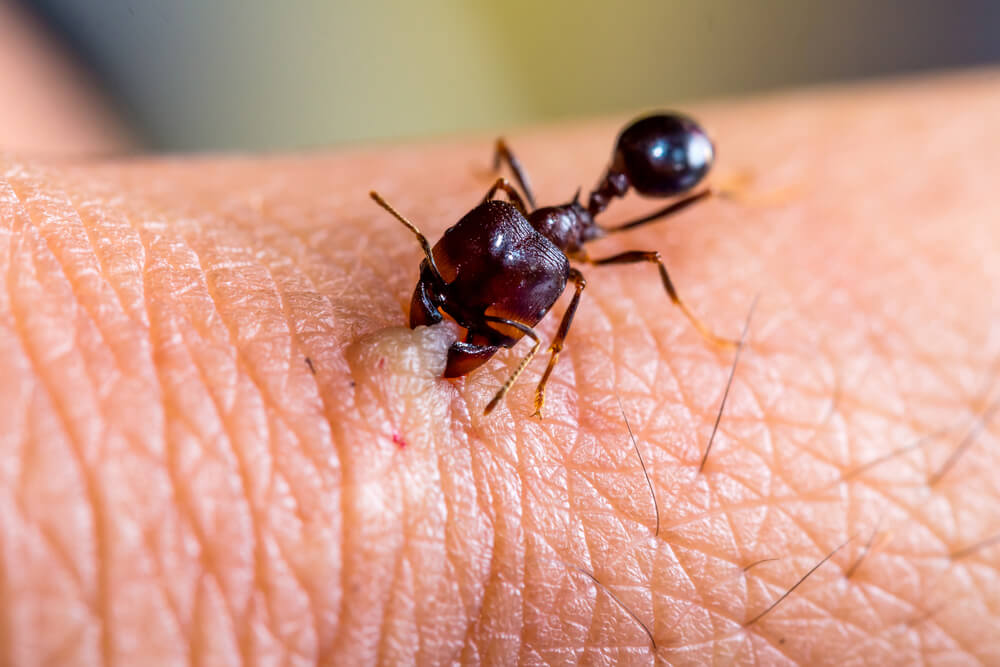
15. Nature’s Stitches
Due to being in the elements, any cut can be infected very quickly. The best thing to do is wrap up your cut and try to clean it with what you have available. Yet one of the coolest ways to survive when lost has to do with a makeshift first-aid concept.
You can use ants with big mandibles or pinchers by putting the ant right at the open sore. Close in the sore and have the ant bite into you. Then just pull the ant off but keep the head and pinchers in. This will act as makeshift stitches and multiple can be used, but we’d recommend changing them out often.
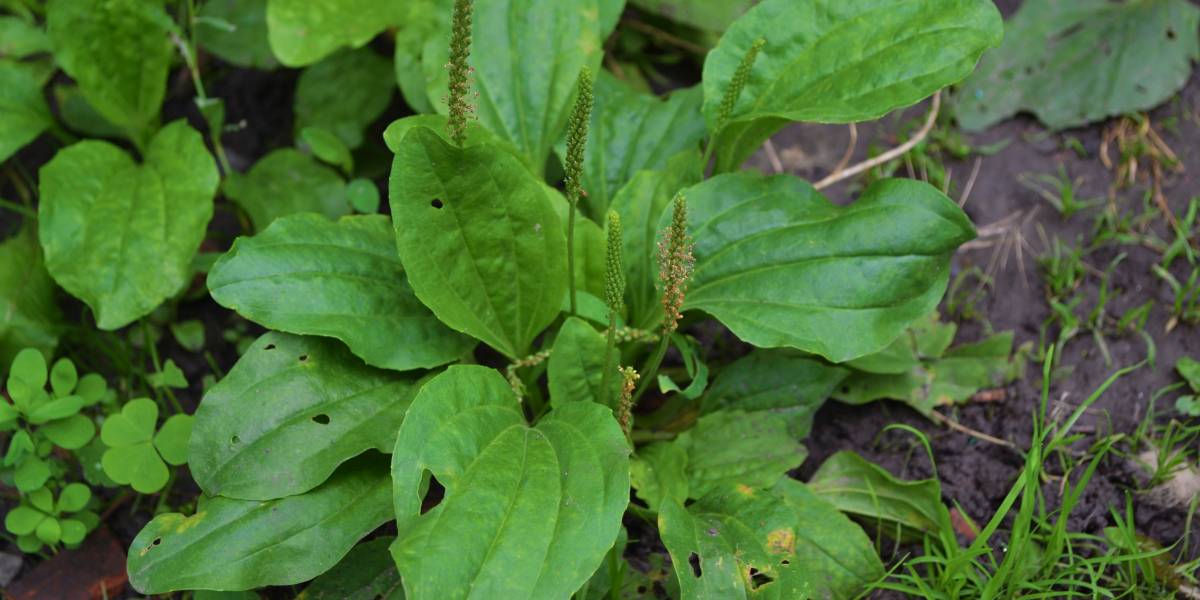
14. Look for the Meds!
All medications seemingly began with some sort of property that originated from a plant. Since we know medications are all around us, we shouldn’t overlook them when we’re in need. One of the biggest ways to survive when lost is to know about various medicinal plants native to your area.
Always be aware of the environment you are in. For example, in the United States, there are plants like Yellowroot and the Broadleaf Plantain that both have medicinal properties. Broadleaf acts as an aid to gastrointestinal distress, plus they are good in salads too. Meanwhile, Yellowroot is helpful for things like infections, it also helps get rid of mouth sores, and acts as a sedative when used with other medicinal plants. Both of these can be critical finds to aid you in the wild.
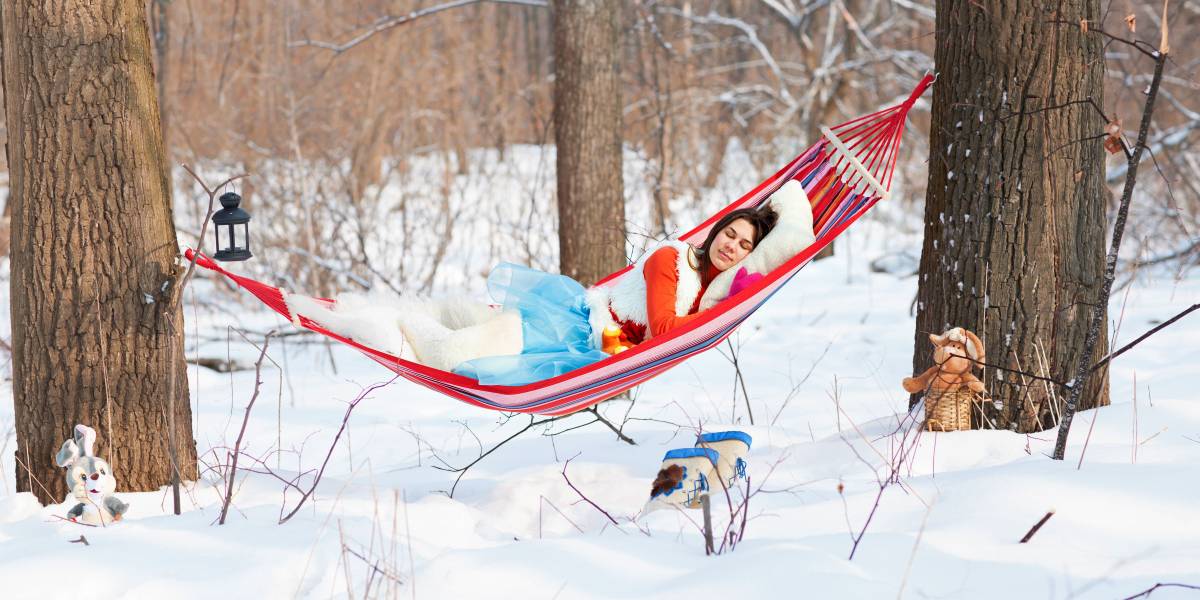
13. Bedding Location is Very Important
A lot of people make the mistake of making camp and merely laying on the ground. While it is true that a good fire can help rid you of most bugs, there are many other creepy crawlies that come out at night too. From things like scorpions to fire ants, even lizards, and snakes. It’s quite clear that being on the ground can be a bad idea.
The best thing to do is make a platform off the ground, which can be easily done by finding sturdy branches. To make it softer for sleeping, merely find leaves to put across it. You may not have them, in which case you can cut parts of some trees off with your knife and weave together bedding.
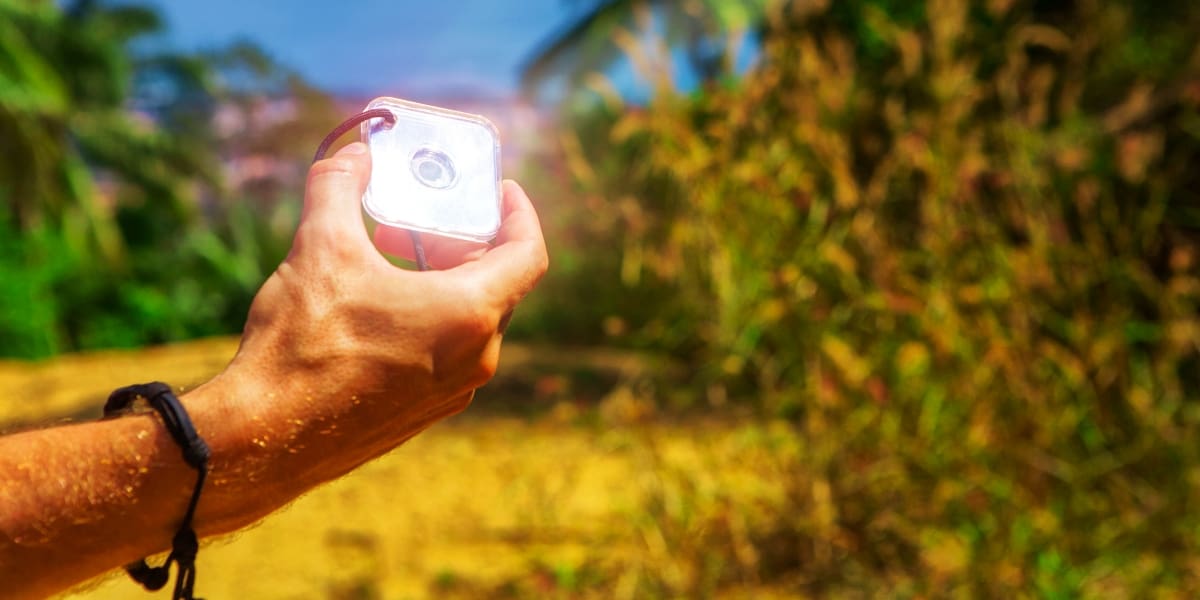
12. Mirror Survival
Having two people can also help you cover more ground. The problem is you do not want to get lost if you have to split up, so some form of communication is key. Most women pack mirrors in their bags, allowing you to use one or a few to signal back and forth. For the average guy, sadly you need to get more creative.
You can make one out of the water if it is cold enough too! You’ll just need to weave out a handle and put water in the middle then allow it to freeze. Merely knock off the chunks in the back and you now have a makeshift mirror to help with signaling. There is also the possibility of making glass but that’s far too complicated.
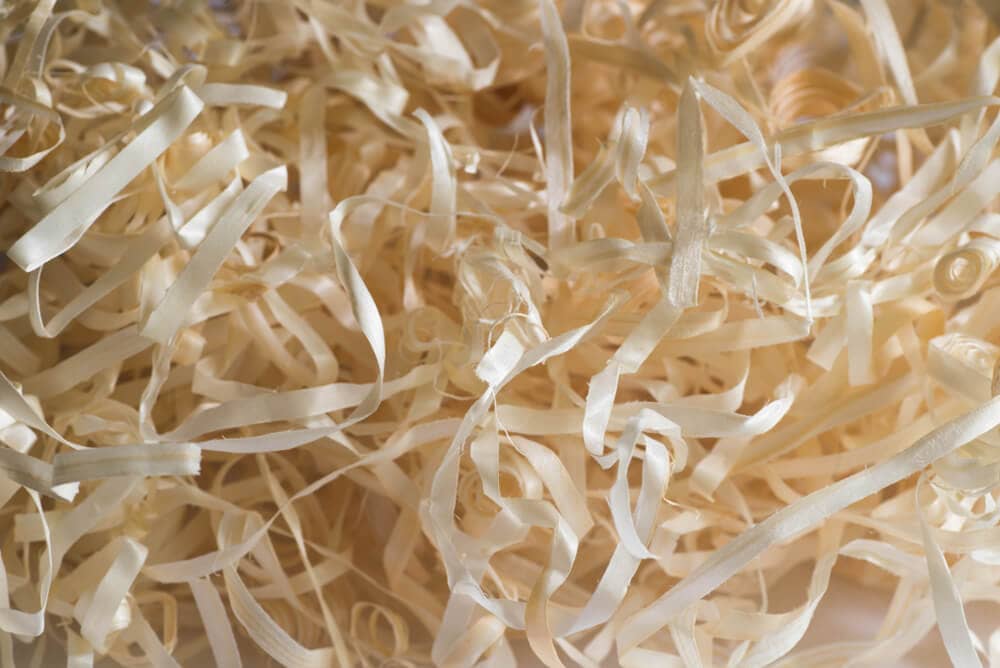
11. The Feather Stick
Starting a fire is huge in a survival situation, especially when it’s cold and/or wet outside. It is unlikely you’ll bring a fire-starting kit, a lighter, or matches when you get lost. This is where we have one of the coolest ways to survive when lost in the wild, as we refer you to the infamous “feather stick.”
To make one, find a tree and remove as much bark as you can and cut out some of the wood from the inner tree. Once you to, peel open the layers of the wood and you’ll make what appears like a feather. This will help you start fires easier, even if it gets wet. It’s quite a useful tinder.
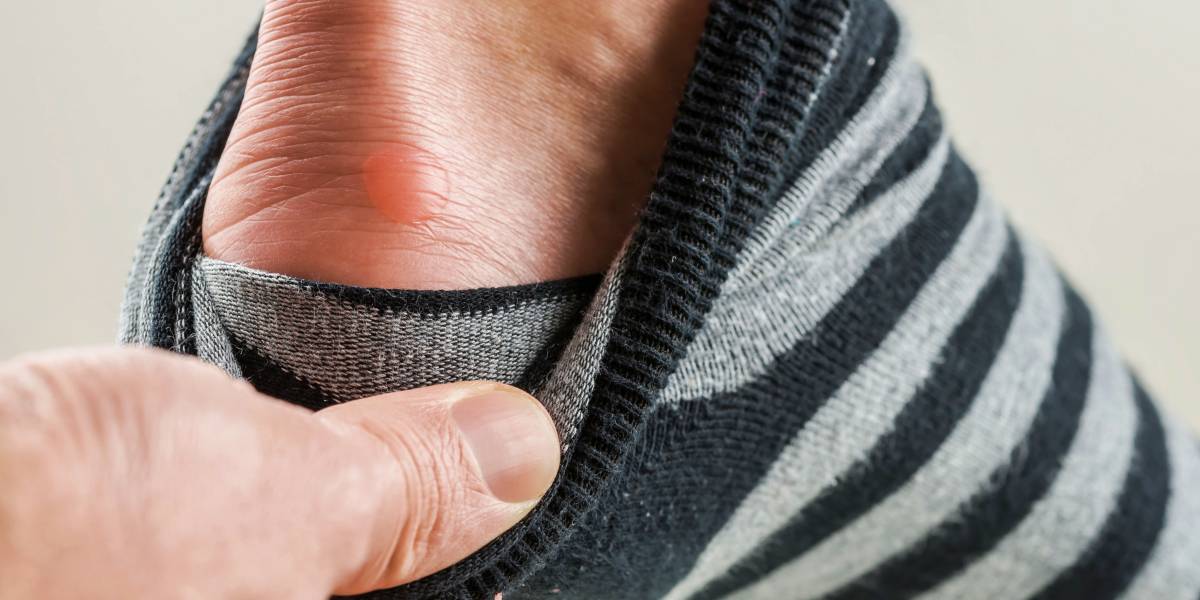
10. Blister Control
A lot of people get blisters when in a survival situation. This is not good as they can become painful and even affect how well or far you can walk, with even pain being an issue. Yet one of the ways to survive when lost most important to remember is to know how to handle these blisters when they come about.
In order to avoid fluid from building up, you need to make sure to cut into the blister just a bit. By doing it sooner, you prevent the pain that the build-up provides and it’ll be a smaller hole. This will prevent you from making a larger hole later with a bigger blister. Use duct tape if handy as a bandage of sorts for the cut.
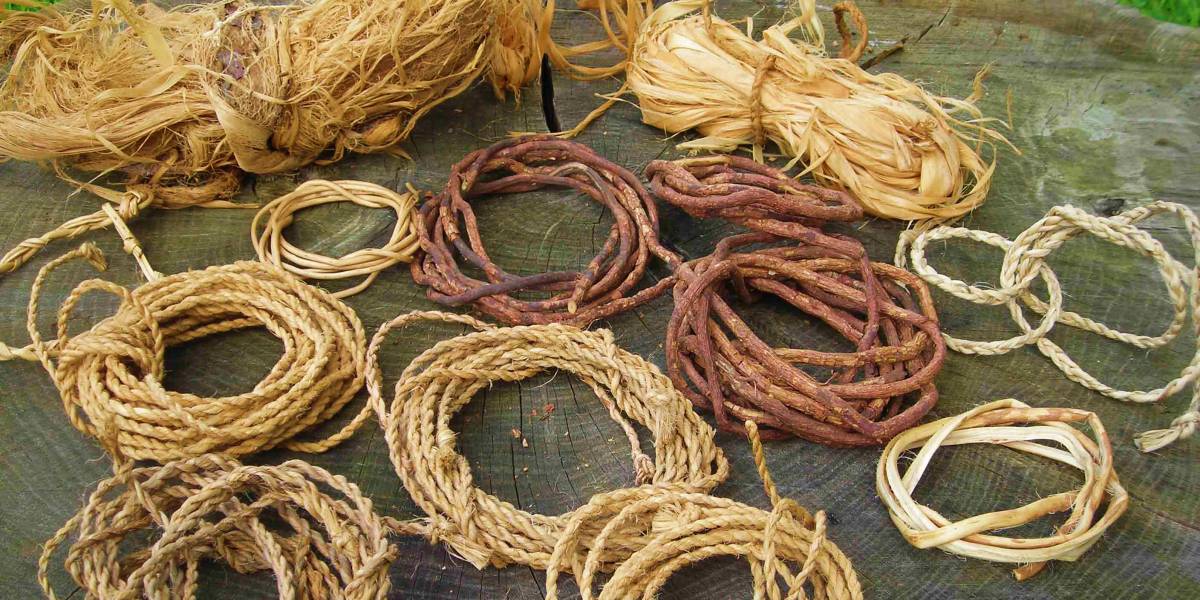
9. Natural Rope
It’s possible that you won’t pack rope in a survival situation, very few of us do. Due to this, you’ll want to create some natural rope to help yourself out. You can do this by cutting into trees with your knife. Obviously, those that do not have bark are easier for this but you can use those too. Cut long threads off the trees.
The more you get, the better. Once you do, make things smaller by cutting into the wood you now have. Once you have these makeshift ribbon strips, they will be easy to form stuff with. Just weave them together after tying a knot at the top. The more you do this, the more rope you’ll create. Willow trees are perfect for this but most trees can work.
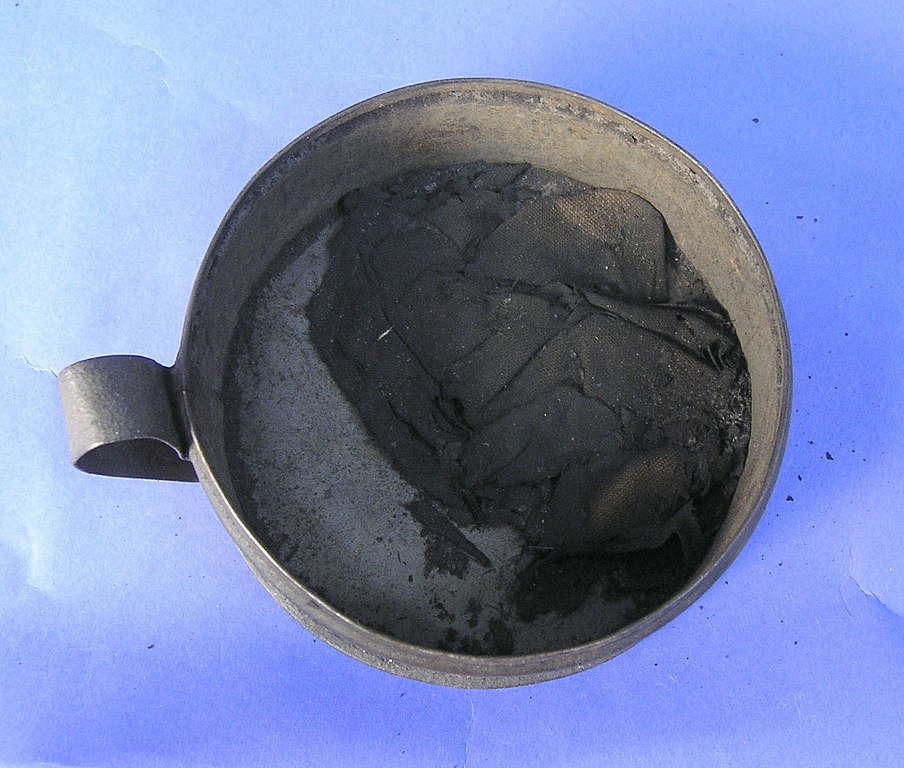
8. Char Cloth
When you need to make a fire in a hurry or simply want to conserve energy, the char cloth is the way to do. Before you leave a campsite fire, be sure to use some cloth or rope that is made of plant fibers. Rope is slightly different depending on what you have access to.
Essentially, you’ll want to char this but not burn it with your fire. By creating the char cloth, it takes practically no effort to get a fire going upon a spark. One of the most critical ways to survive when lost anywhere is getting a fire going, especially in a way that conserves energy. This is the perfect way to do that. Many even work in wet conditions!
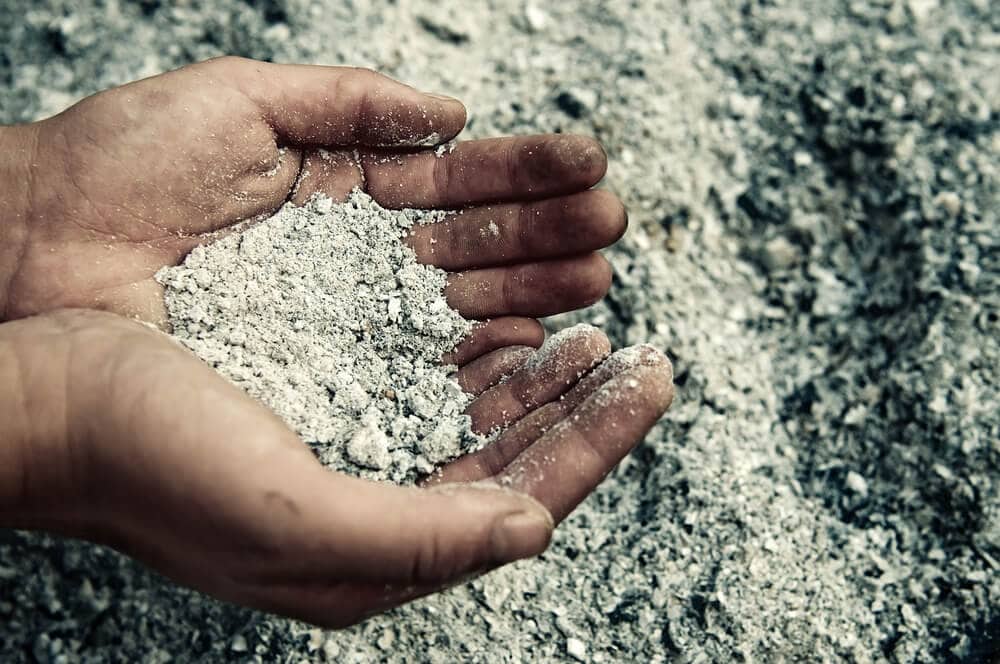
7. Nature’s Soap
One of the most important ways to survive when lost anywhere is to have some sort of disinfectant or soap product. Chances are, they aren’t growing on trees. However, you can get the next best thing with your fire by using ash! It’s basically nature’s own soap.
Heck, there is specifically made Ash Soap on sale right now in stores. When wood burns and creates ash, sodium hydroxide can be created by mixing it with water, which is what the Ash Soap technically is. Water is not always needed, as the ash is basically potassium carbonate. Thus, it’ll do a lot of cleaning by itself.

6. How to Find Water
A lot of people die in survival conditions not from animals killing them or the elements, but often from dehydration. Therefore, it should go without saying that one of the biggest ways to survive when lost anywhere in the world is to stay hydrated as much as possible. The question is, how do you do this?
Following animals can lead you to better resources but it seems that birds and bees often nest near water resources or know where some happen to be. Thus, following them will likely help you find water too. Be careful not to spook them or they’ll fly off faster and you’ll have nothing.
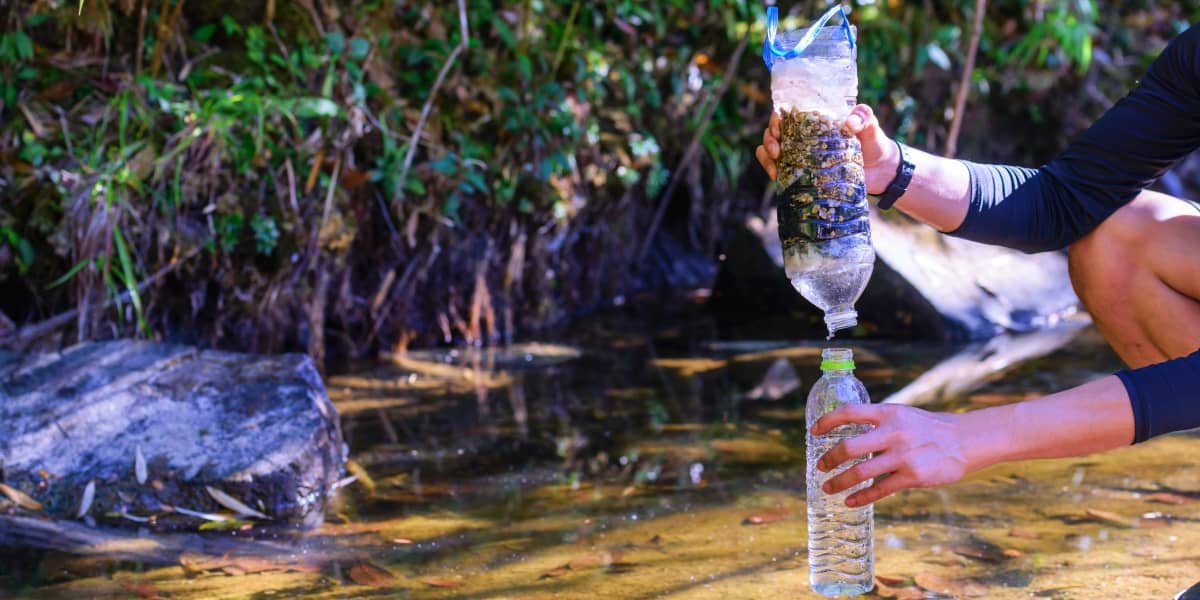
5. Create a Water Filter
Creating a water filter is the best thing you can do to get clean water. Ultimately, you need to do this as even bringing water up to a boil in a fire won’t completely rid you of bad stuff in the water. Therefore, it is good to filter it too. This can be done pretty easily. The first thing you need is an empty bottle or container. One can be made with things like birch bark too, up to you!
Poke small holes in the bottom of it, now you’ll want to find coarse gravel, coarse sand, crushed up charcoal, and fine sand. Then fill up the container about an inch or two. Then add water to the top layer of fine sand. It should filter the water completely by the end of the water’s journey through. We’d recommend still boiling it for extra security.

4. But the Water Tastes Terrible
A lot of people will do everything they have to do in order to filter their water and/or putting it up for a boil. Their water will be okay to drink but may taste absolutely terrible. This can be a huge problem, as it’ll be a tough thing to deal with from a mental standpoint. Mental health is big when lost.
Therefore, one of the best ways to survive when lost is to keep your mental state healthy. When it comes to water, you can do this pretty easily. Simply add charcoal to the water. It absorbs some of the bad-tasting stuff and will actually help to make your water taste better. Go ahead, try it and see!
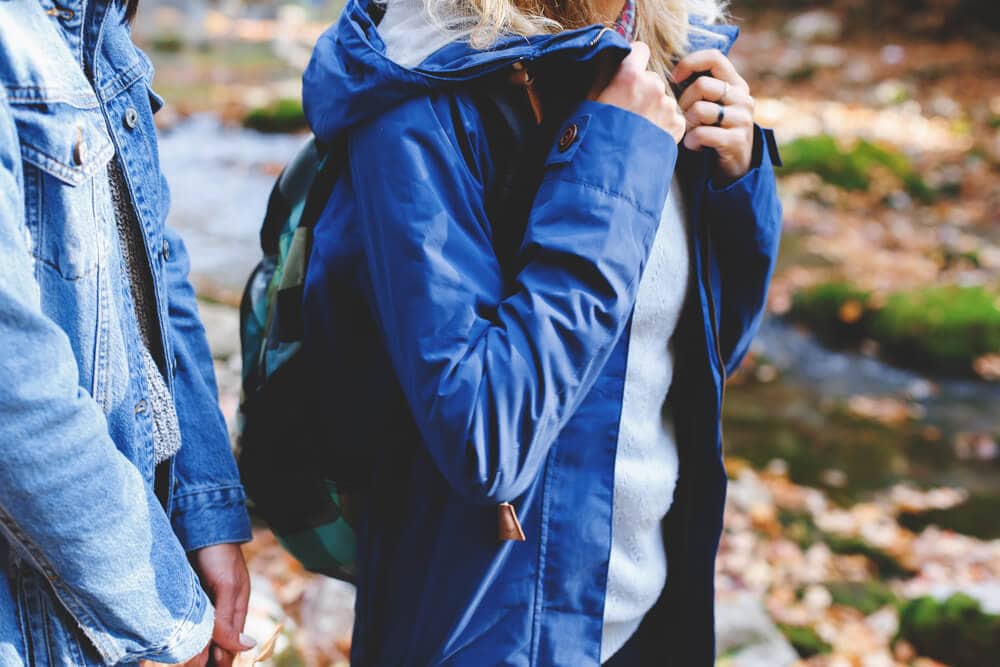
3. The Use of Sleeves
When you’re in a hot environment, our human impulse is to remove layers to cool down. This is due to our bodies sweating due to overheating. This is a good reaction most of the time, but when you’re in the wild? Not so much. One of the key ways to survive when lost in a warmer environment is to keep those long sleeves on.
The reason? When you sweat, you’re losing water from your body that is being used to cool you down. With open skin, you’re allowing all that sweat to evaporate. However, the sleeves or clothing, in general, will catch it. Losing sweat or water from your body quickly can lead to faster dehydration symptoms or heatstroke. So leave the clothes on rather than remove them!

2. Weapons & Tools
It’s very clear that proper weapons and tools will be needed. They are very important and using them will be one of the key ways to survive when lost anywhere in the world. But what if in your haste to go into the wild, for some reason, you leave behind any weapon or tool that could help?
This isn’t an issue. You can use rocks to knock edges off of other rocks or hard substances to create these. You can create sharp tipped knives or arrowheads using this method. Native Americans, as well as Indigenous tribes, have used this method for literally thousands of years.

1. Remember to Rest
It should go without saying that rest is key yet many people are so desperate to get out of the survival issue they are in that they forget about it. However, conserving energy might be one of the most important ways to survive when lost anywhere in the world. You’ll need to save up energy at all costs, so doing things in survival to save it can be crucial.
From taking rests more often to walking slower or going around more intense climbs is best. For some, this is not much of an issue and they can soldier on without an issue. Truly, this all depends on the shape a person is in. Some people may need more rest than others.

